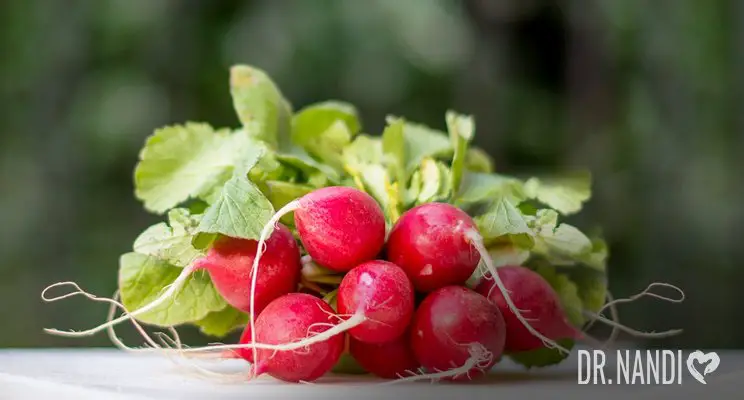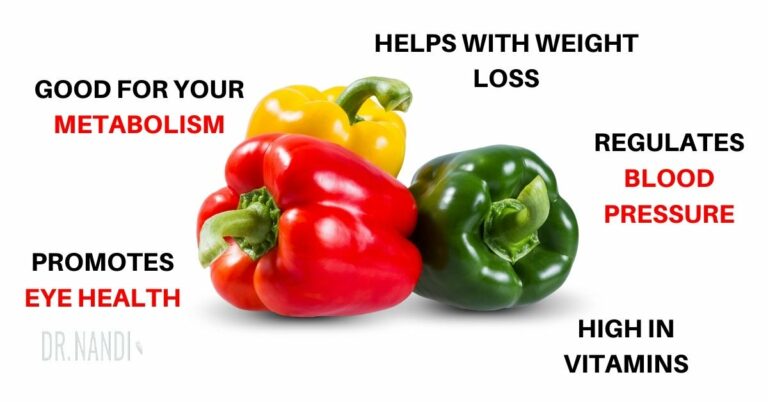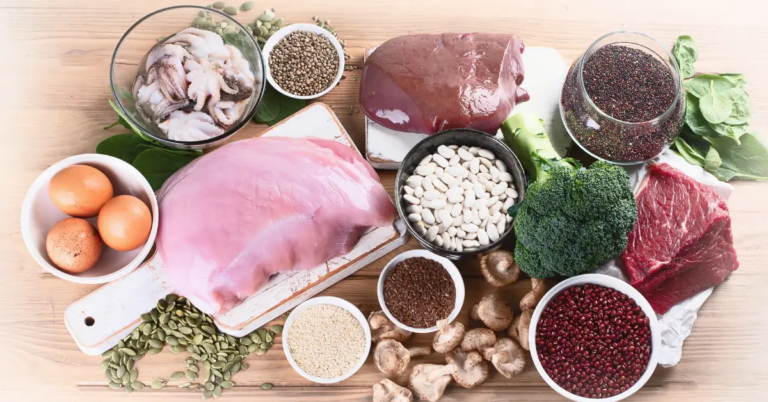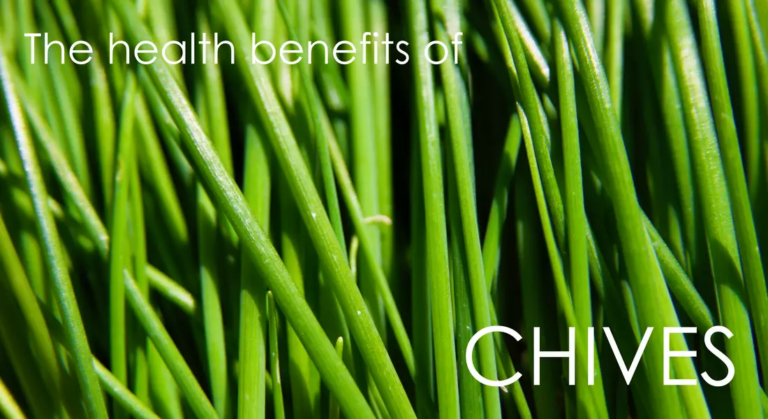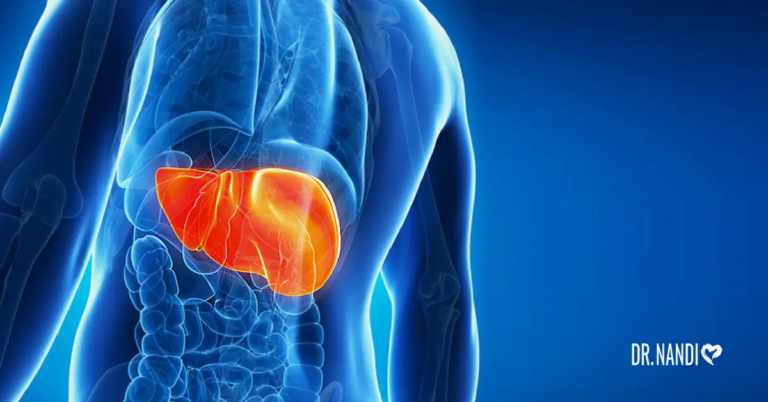Radish is an edible root vegetable of the Brassicaceae family. Radishes were domesticated in Europe in pre-Roman times. They are grown and consumed worldwide and are mostly eaten raw as a crunchy salad vegetable.
Nutrition Facts
Sliced radishes have a scant 12 calories and no fat in a 1/2-cup portion so that they won’t ruin your healthy eating plan. When the munchies hit, sliced radishes are a delicious crunchy meal.
Vitamin C is abundant in red and white radishes. Just 1/2 cup provides roughly 14 percent of your daily requirement. Vitamin C is an antioxidant that helps defend against free radicals in the body and cell damage caused by aging, a poor lifestyle, and environmental pollutants. Vitamin C is an antioxidant that helps the body to repair damaged tissues and maintain healthy skin, blood vessels, and gums.
Radishes are high in:
- potassium
- folate
- riboflavin
- niacin
- vitamin B-6
- vitamin K
- calcium
- magnesium
- zinc
- phosphorous
- copper
- manganese
- sodium
Health Benefits of Radishes
Here are some of the nutritional health benefits of radish.
Radishes May Treat Jaundice
Researchers have discovered that radishes are perfect for the liver and stomach and act as a powerful detoxifier. Studies have found that radishes help to purify the blood and eliminate toxins and waste. They are instrumental in treating jaundice because they can remove bilirubin and stabilize its production. Radishes reduce the destruction of red blood cells in people with jaundice by increasing the supply of fresh oxygen to the blood. Black radishes are preferred in treating jaundice, and radish leaves are also beneficial.
Radishes Have Anticancer Properties
Research is being conducted on radishes and their ability to treat cancer because they are known detoxifiers high in vitamin C, folic acid, and anthocyanins. Research shows promising results, especially when treating colon, kidney, stomach, and oral cancer. Radishes, as do other cruciferous vegetables, are packed with antioxidants. Radishes contain isothiocyanates that impact the genetic pathways of cancerous cells. Isothiocyanates alter the paths so that they can cause cell death, stopping cancerous cells from reproducing.
Radishes Promote Heart Health
Researchers have known that radishes are an excellent source of potassium known for reducing blood pressure. Potassium can relax the blood vessels and therefore increase blood flow. The potassium in radishes is also known to lower blood pressure by widening the blood flow instead of forcing it through narrow, constricted channels.
Radishes Have Antifungal Properties
Many studies have found that radish is a natural antifungal. Radishes contain the antifungal protein RsAFP2. A recent study found that RsAFP2 can cause cell death in Candida albicans. It is a common fungus typically seen in humans. Candida albicans may cause vaginal yeast infections, oral yeast infections (thrush), and invasive candidiasis. A promising study in mice has shown that RsAFP2 was effective against Candida albicans and other Candida species but to a lesser degree. More research is being conducted on radishes and their ability as a natural antifungal.
Radishes May Aid Digestion
Radishes have 1 gram of fiber per serving. Consuming a couple of servings daily can help you reach your daily fiber intake. Fiber is well known to help prevent constipation by bulking up stool which helps waste move through the intestines. Fiber is also thought to help manage blood sugar levels and is linked to weight loss and lower cholesterol. The leaves of radishes may be especially beneficial. A study on rats fed a high-cholesterol diet suggests that radish leaves are a good source of fiber to help improve digestive function. It may be partially due to increased bile production. Another promising study found that radish juice may help prevent gastric ulcers by protecting gastric tissue and strengthening the mucosal barrier. It is essential because the mucosal barrier protects the stomach and intestines against unfriendly microorganisms and damaging toxins that may cause ulcers and inflammation.
Radishes Have Antifungal Properties
Radishes are antifungals in their natural state. They include the antifungal protein RsAFP2. RsAFP2, a component of radishes, was shown to induce cell death in Candida albicans, a common fungus in people. Candida albicans can cause vaginal yeast infections, gum disease (periodontitis), and invasive candidiasis when they grow excessively.
In a previous study, RsAFP2 was shown to be effective against Candida albicans and other Candida species to a lesser degree. RsAFP2 had no effect on Candida glabrata strains.
Radishes May Help Reduce Zen Effects
Zearalenone (zen) is a fungus that attacks corn and animal meals. It has been linked to reproductive difficulties in animals and people, although the risk to humans is considered small. According to a 2008 study, radish extract raised antioxidant activity in mice and may be used as an innocuous way to reduce or prevent zen effects.
Radishes May Help at Osteoarthritis Relief
Vitamin C is required to produce collagen, a cartilage component in our bodies. When we think about vitamin C, we typically visualize oranges and orange juice, although radishes are some of the best vitamin C foods. Radishes provide 17.2 milligrams per serving, around 29% of your daily requirement.
Vitamin C is an antioxidant that can help prevent cartilage deterioration caused by free radicals in the body. In the end, this may benefit anybody diagnosed with arthritis or who wishes to avoid it.
Radishes May Help in Weight Management
Radishes are tiny but pack a surprising amount of fiber, making them an excellent side dish. Radishes are high in fiber and may assist lower cholesterol by binding to low-density lipoproteins as a high-fiber food.
Fiber does not readily digest, so eating foods high in fiber might help you feel fuller and prevent overeating. Most people don’t get enough fiber in their diets. Furthermore, the radish is low in calories and has a lot of water, making it an excellent choice for almost any meal and a fantastic tool for anybody wanting to lose weight.
Radish Benefits Skin Health
Radish has a wealth of nutrients, including B vitamins, zinc, phosphorous, and vitamin C. Water is also present in radish nutrition, as I previously stated, which is crucial for skin hydration.
The antibacterial compounds in radishes help to heal dry, cracked skin and prevent infection, making it a good option for the skin.
References:
- Tunisian radish extract (Raphanus sativus) enhances the antioxidant status and protects against oxidative stress induced by zearalenone in Balb/c mice – Salah‐Abbès – 2008 – Journal of Applied Toxicology – Wiley Online Library
- Review on the toxicity, occurrence, metabolism, detoxification, regulations and intake of zearalenone: An oestrogenic mycotoxin – ScienceDirect
- In Vitro Activity of the Antifungal Plant Defensin RsAFP2 against Candida Isolates and Its In Vivo Efficacy in Prophylactic Murine Models of Candidiasis | Antimicrobial Agents and Chemotherapy (asm.org)
- The plant defensin RsAFP2 induces cell wall stress, septin mislocalization and accumulation of ceramides in Candida albicans – Thevissen – 2012 – Molecular Microbiology – Wiley Online Library
- Hexane Extract of Raphanus sativus L. Roots Inhibits Cell Proliferation and Induces Apoptosis in Human Cancer Cells by Modulating Genes Related to Apoptotic Pathway | SpringerLink
- Isothiocyanates | Linus Pauling Institute | Oregon State University
- Radish – Vegetable Directory – Watch Your Garden Grow – University of Illinois Extension
- Health Benefits Of Radishes | Med-Health.net
- What are Metabolites? (news-medical.net)
- Piles (Haemorrhoids) | Internal & External Piles | Symptoms, Causes and Treatment | Patient
- Development of radish fibre based snack by response surface methodology (RSM) – PMC (nih.gov)
- Effects of White Radish (Raphanus sativus) Enzyme Extract on Hepatotoxicity – PMC (nih.gov)



